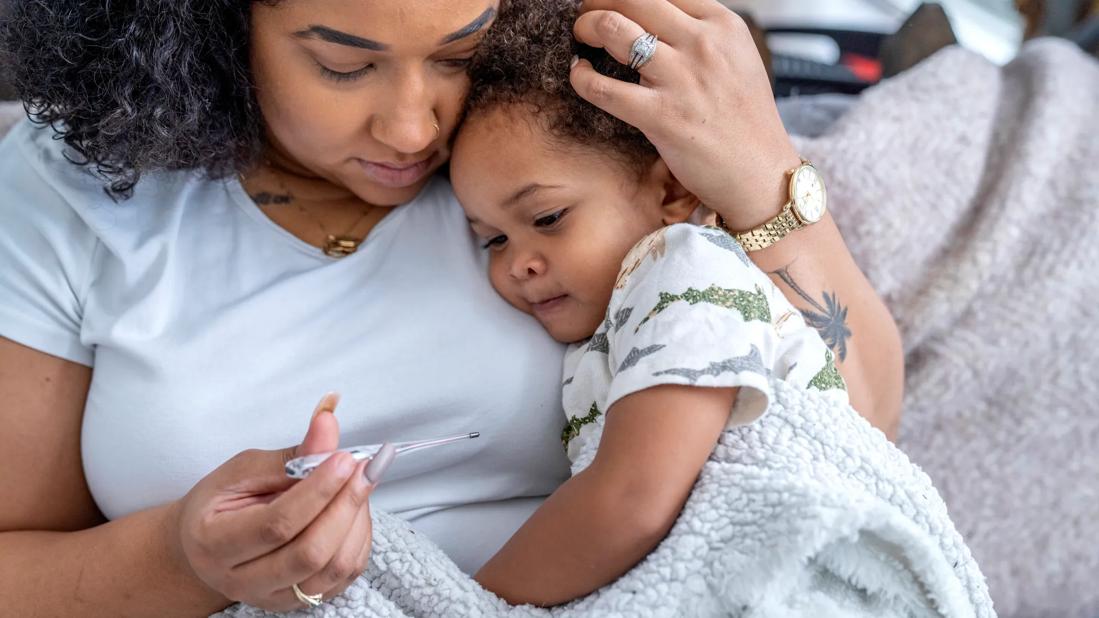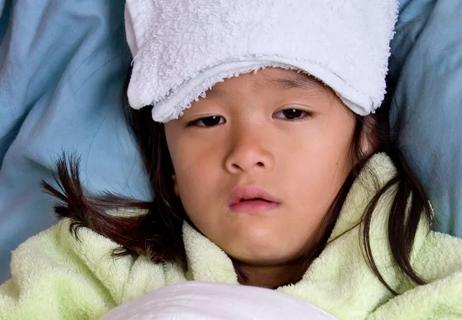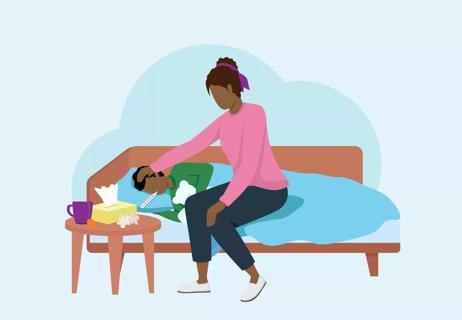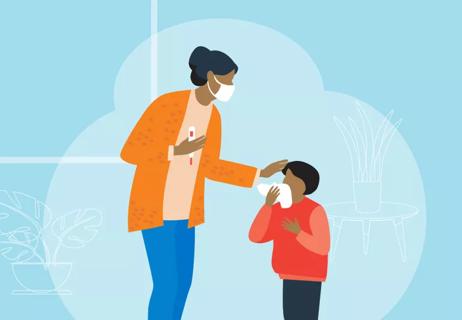Most cases are mild and can be treated at home, but some situations may require medical care or a trip to the ER

Your knee-jerk reaction when your child develops a fever may be to immediately start ringing the alarms. Fevers can be scary for parents, especially first-timers. You might wonder how high is too high or if you should call the doctor immediately if your child has one or head straight to the emergency room. Certainly, something must be done, right?
Advertisement
Cleveland Clinic is a non-profit academic medical center. Advertising on our site helps support our mission. We do not endorse non-Cleveland Clinic products or services. Policy
Well, not always. It turns out that not all fevers are something to fret about. And knowing the difference between a fever that needs treatment and a fever that can be left to run its course can help your child get better faster — and with less stress on you.
“Every child will eventually experience a fever, no matter how careful you are,” says pediatrician Tracy Lim, MD.
And it’s important for parents and caregivers to know what to do when this happens. Dr. Lim explains how to spot a worrisome fever in children and when to take your baby to the hospital for a fever.
A “normal” body temperature is 98.6 degrees Fahrenheit, or 37 degrees Celsius, but that doesn’t mean you have to hit the panic button if your child’s temperature inches above that.
Everyone’s temperature will vary a little throughout the day. It can also differ by age, activity level and other factors. The type of thermometer you use will change the definition of what’s actually a fever for your child, too. Different kinds of thermometers have different levels of accuracy.
“It’s most accurate to use a rectal thermometer for infants and young children, but if you feel uneasy doing this, use whichever device makes you most comfortable,” Dr. Lim advises. “In older children, an oral temperature is most accurate, if the child is able to tolerate it.”
Advertisement
| Child’s age | Type of thermometer | What’s considered a fever |
|---|---|---|
| 0 to 5 years | Rectal | 100.4 F (38 C) |
| 0 to 5+ years | Armpit | 99 F (37.22 C) |
| 0 to 5+ years | Forehead | 100.4 F (38 C) |
| 2 to 5+ years | Ear | 100.4 F (38 C) |
| 5+ years | Mouth | 100 F (37.77 C) |
| Child’s age | ||
| 0 to 5 years | ||
| Type of thermometer | ||
| Rectal | ||
| What’s considered a fever | ||
| 100.4 F (38 C) | ||
| 0 to 5+ years | ||
| Type of thermometer | ||
| Armpit | ||
| What’s considered a fever | ||
| 99 F (37.22 C) | ||
| 0 to 5+ years | ||
| Type of thermometer | ||
| Forehead | ||
| What’s considered a fever | ||
| 100.4 F (38 C) | ||
| 2 to 5+ years | ||
| Type of thermometer | ||
| Ear | ||
| What’s considered a fever | ||
| 100.4 F (38 C) | ||
| 5+ years | ||
| Type of thermometer | ||
| Mouth | ||
| What’s considered a fever | ||
| 100 F (37.77 C) |
A fever may be a sign that your child is fighting an infection from the common cold, flu, ear infection, stomach bug or a urinary tract infection (UTI).
It can be difficult to spot certain symptoms in your baby or child. But your child may also experience the following symptoms if they have a fever:
“If your child experiences any of these symptoms when the fever comes down, you should contact your pediatrician’s office,” instructs Dr. Lim.
It can be worrying to see your kid spike even a mild fever. We get it. But the truth is that a fever is actually a sign that your child is fighting off germs. It’s doing what it’s supposed to. And that’s a good thing.
Dr. Lim says doctors tend not to worry about a fever if it’s mild, lasts fewer than five days and doesn’t affect your kid’s day-to-day activities. Mild fevers can be monitored at home. If needed, you can also treat them or safely break a fever with:
Now, for the important question: When should you be worried about your baby’s fever? Do you know when to take your toddler to the ER for a fever?
Call your doctor in these cases:
Advertisement
In certain cases, a fever can be present with other symptoms that may be a sign of a serious illness.
Head to the ER or call 911 or emergency services, if your child has a fever and any of the following:
Seizures can be a very scary side effect of fevers in some children. Febrile seizures occur in 2% to 4% of all children under age 5. Not all seizures cause jerking movements in the body. Dr. Lim says some seizures look like “passing out.”
If your child develops a seizure:
If the seizure lasts fewer than five minutes, call your physician or seek immediate medical attention.
It can be scary when your child has a fever and it can be nerve-racking to know when to take your child to the ER for a fever.
Advertisement
While most fevers are considered mild and can be treated at home, Dr. Lim says if you’re concerned or have questions, don’t hesitate to call your child’s pediatrician to ask for guidance and advice.
“Your pediatrician’s office can help determine if your child’s symptoms require evaluation in the office,” she says.
Advertisement

Sign up for our Health Essentials emails for expert guidance on nutrition, fitness, sleep, skin care and more.
Learn more about our editorial process.
Advertisement

Any fever, especially one of 100.5 degrees Fahrenheit or higher, should trigger a call to your oncologist — and maybe a trip to the ER

A combination of rest, fluids and over-the-counter medications can help you feel better fast

When your body is fighting infection, your internal temperature rises as a defensive response

It can cause alcohol poisoning and other serious health issues, especially in kids

It’s important not to give them fever-reducing medications right off the bat

Is it just a passing chill or something more serious?

What you need to know about these common misconceptions

Even small moments of time outdoors can help reduce stress, boost mood and restore a sense of calm

A correct prescription helps your eyes see clearly — but as natural changes occur, you may need stronger or different eyeglasses

Both are medical emergencies, but they are very distinct events with different causes